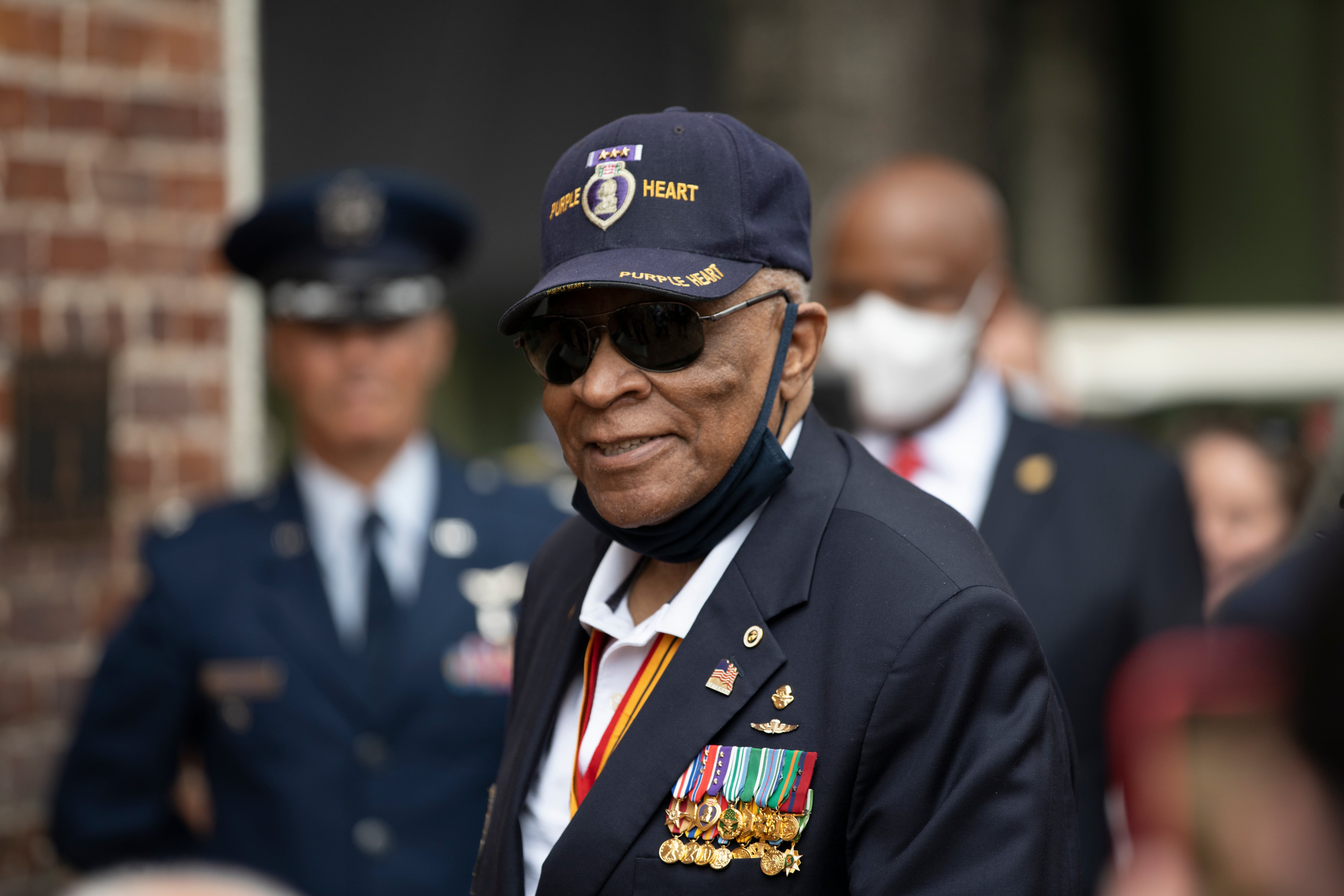In 1967, Maj. James Capers Jr.’s greatest threats were enemy fire and claymore mines. In 2025, they are friendly indifference and bureaucratic paralysis.
Capers is a legend — a decorated Force Recon Marine who led multiple assaults, saved lives and paid the price in blood. Everyone, without exception, who has reviewed the facts — whether it was 3rd Marine Division Commanding General Maj. Gen. Bruno Hochmuth, who spoke with Capers’ Marines in 1967, those who have read firsthand accounts or those who have seen Capers’ actions compared, side by side, with the actions of other Marines who rightly received our nation’s highest honor — agrees on one point:
Capers deserves the Medal of Honor.
Some have stated, after reviewing the evidence and the comparative chart, that the Medal of Honor is not awarded by some mechanical checklist and that it has always involved subjective judgment.
The purpose of presenting the evidence and comparisons is not to suggest we can “math” our way to a MOH — it’s to highlight when we look at all things being equal (situation, actions, timeframe, organization, impact, etc.), Capers’ case should have been evaluated on par with others who received the MOH.
If the argument is that the process is purely subjective, then we must ask: What was the subjective factor that led to Capers receiving the Silver Star rather than the MOH? Was that factor justified? Was it fair? Was it consistent?
If we accept that everything is subjective with no need for comparison or review, then why not put everyone up for the MOH?
Simply saying it’s subjective can’t be the end of the conversation — we must understand the subjective input, or else we leave the door open to biases, oversights and errors. There must be some balance — guided by standards, fairness and accountability.
To that, most respond with a shrug:
“It is what it is. For every Capers, there are dozens more who were also overlooked.”
That resignation isn’t leadership. It’s surrender. Worse, it’s a self-fulfilling prophecy.
They assume Capers will not receive the MOH because they know others were left unrecognized — perhaps because they themselves never fought for them, or because they quietly accept that the system is broken.
And if Capers is denied once again, they’ll simply nod and say, “See? I told you,” instead of fighting to fix what they know is broken.
Others hide behind bureaucratic lines, claiming Capers’ case has already been reviewed or that there is no new information.
But if that’s true — if the same facts now before the president, Congress and the public were substantially the same as they were before the awards board — then the board’s conclusion was flawed. Capers would have, or should have, been recommended for the MOH.
A reasonable alternative explanation is that the Marine Corps’ awards board only considered Capers’ original end-of-tour Bronze Star with a “V” device for upgrade to the Silver Star, which they recommended.
Why?
Because, procedurally, the Silver Star is the highest valor award a Marine can receive for an end-of-tour award.
The MOH is not an end-of-tour award — it’s for specific acts of valor. The board was procedurally constrained and Capers’ actions were not properly recognized.
Moreover, when the Navy’s decorations and awards board reviewed the matter, they assessed the information the awards board considered — not the process and not whether Capers’ actions were actually deserving of the MOH.
These procedural constraints, while understandable, cannot now be used to justify a faulty outcome.
And yet, while civilian members of Congress are leading this fight with aggressive determination — challenging the bureaucracy, introducing legislation and signing a bipartisan letter to the president — our Marine Corps leadership stands on the sidelines, citing adherence to a flawed system.
That should trouble anyone who has ever worn the Eagle, Globe and Anchor.
Semper Fidelis; honor, courage and commitment; and looking after our own mean nothing if we don’t live and act in accordance with those words. Where is our integrity if we know what’s right, yet choose to remain silent?
There is public reputational risk here, too. If the Marine Corps is seen as indifferent — or worse, obstructive — it invites hard questions: from the media, from the public, from the next news exposé or feature. And if that happens — over the MOH for a legendary Force Recon Marine, who also just happens to be Black — the fallout could be devastating.
To be clear: There is no evidence of racial discrimination in this case, nor that this award has anything to do with diversity, equity and inclusion. Capers’ recommendation is 100% merit-based, backed by overwhelming evidence and support from his commanders.
But that won’t be the headlines.
This cannot be about politics, public pressure or optics. It must be about leadership — Marine leaders, past and present, standing up for one of our own. Being the champions that Capers — and every Marine — expects and deserves.
If we’re unwilling to correct this injustice simply because it’s hard, then we’ve lost our moral compass. And even if we fail, let it be said that we failed fighting for what is right — that we were not among “those cold and timid souls who knew neither victory nor defeat.”
Now that President Donald Trump — the same president who rightly awarded the MOH to Sgt. Maj. John Canley, another Vietnam hero — is involved, it’s likely he will cut through the bureaucratic morass to ensure Capers receives the recognition he has earned.
The only question is: Will the Marine Corps take the offensive to ensure Capers, now 87 years old, receives the MOH while he is still alive?
History will remember not only if we acted, but when.
The time to act is now.
Lt. Col. David “Bull” Gurfein is a retired prior-enlisted Marine infantry officer who served in Panama, the first Gulf War, Afghanistan and Iraq. He is the CEO of United American Patriots.





